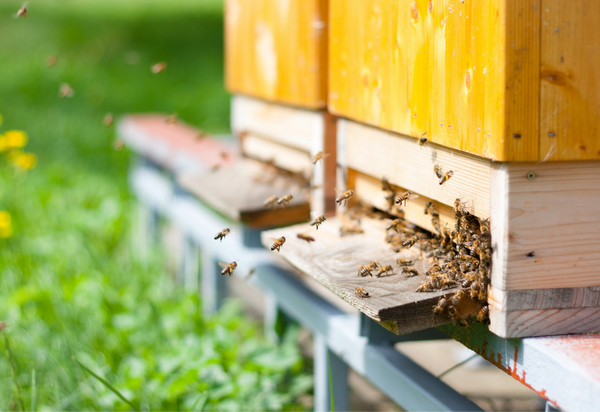A bulletproof immune system is the holy grail of cold-weather health. When your immune system’s doing its job efficiently, it can help prevent bugs from colds and flu to food poisoning. Everyone’s immunity is genetically different, meaning you may have immune system genes that are good at dealing with a particular virus, but not with others - which may go some way to explaining why you’ve picked up the office cold while your colleague’s managed to avoid it, or why you’ve swerved the nasty flu bug that felled the rest of your family. Past exposure also comes into immunity. You can’t catch the same cold or flu virus twice – but there are over 200 cold and flu viruses and even a slight mutation in one of them can change it enough to allow it to take hold in your body.
Of course, you can’t control your genes or your past exposure to viruses – but there are lots of lifestyle factors that also affect the robustness of your immune system. Ever noticed you catch every cold going when you’re working hard, or find it hard to shake off a cough when you have lots of family issues to deal with? Chronic stress is known to dampen immunity, with classic research showing those under pressure have a weaker immune response, with fewer natural killer cells, which fight viral infections.1 Poor sleep – which can go hand-in-hand with high stress, as stress affects your sleep – also lowers your immunity.2
Unsurprisingly, missing out on certain nutrients can mean you put up a poor defence against whatever bugs you come across. Research suggests even fairly mild deficiency in key nutrients – including vitamins A, C, E, B6 and folic acid, along with zinc, selenium and iron – can affect the way your immune system responds to attack. Being obese also lowers immunity.3
5 ways to support your immune system
1. Wash your hands – frequently!
Cold viruses live on hard surfaces like door handles and tables. From there, they can get transferred to your hands, and then, if you touch your eyes or nose, find their way into your body and cause those dreaded symptoms. So one of the best ways to keep colds away is to wash your hands regularly. Wash thoroughly, with warm water and plenty of soap.4
2. Take stress seriously
Long-term stress can lower your immunity. Mindfulness meditation can help bolster your immune system along with easing stress, and may even help ease cold and flu symptoms, according to research from the University of Calgary, Canada.5
3. Get the sunshine vitamin
Your body makes immune essential vitamin D from sunlight, which is in short supply in winter. Research published in the British Medical Journal explained low levels of vitamin D puts us at higher risk of colds and flu – which might be one reason we’re more susceptible during the winter months, when most of us are deficient – and found taking a supplement could help prevent colds and flu.6
4. Heal with honey
A 2016 paper reviewing the current literature showed that Manuka Honey has been found to have anti-inflammatory, antimicrobial and antioxidant properties. The review also noted that some early studies have shown it has antiviral properties and could potentially help your body fight flu bugs.7 Many Manuka fans like to take a spoonful twice a day to stay on top of their wellbeing in the winter. You could also take it in a hot drink, with lemon, ginger and cinnamon, to soothe a sore throat and cough. For an added boost, try one with a high UMF rating. UMF measures many elements of the Manuka Honey including MGO which stands for methylglyoxal, the property that gives Manuka Honey its special powers.
5. Prioritise sleep
Your immune system will thank you for hitting the hay early, as sleep’s vital to keep it ticking over efficiently. One of the best ways to ensure a good night’s sleep is to practise good sleep hygiene – this means creating the right conditions for sleep. Take at least half an hour to unwind before bed, avoiding your smartphone, tablet, TV and laptop, and instead doing something calming, such as reading, having a long soak in the bath, meditating, doing some yoga stretches or listening to music. Make sure your bedroom’s cool, dark and quiet – the best environment for a solid, immune-boosting night’s sleep.
Sources
1. https://www.apa.org/research/action/immune.aspx
2. NHS One You: Sleep Better https://www.nhs.uk/oneyou/be-healthier/sleep-better/
3. Chandra RK. Nutrition and the immune system. Am J Clin Nutr. 1997 Aug;66(2):460S-463S
4. https://www.commoncold.org/prevention.htm5 Obasi CN, Brown R, Ewers T et al. Advantage of meditation over exercise in reducing cold and flu illness is related to improved function and quality of life Influenza Other Respir Viruses 2013 Nov; 7(6): 938–944.
6. Martineau AR, Jolliffe DA, Hooper RL et al. Vitamin D supplementation to prevent acute respiratory tract infections: systematic review and meta-analysis of individual participant data. BMJ 2017;356:i6583
7. Carter DA, Blair S, Cocketin NN et al. Therapeutic manuka honey: no longer so alternative. Front Microbiol. 2016; 7: 569.







